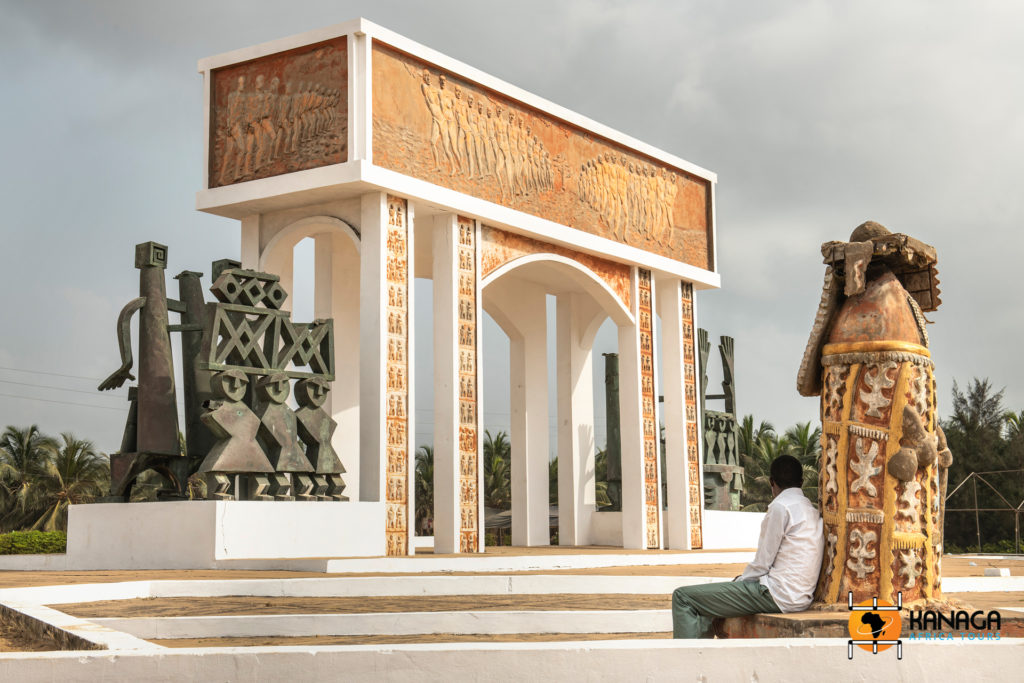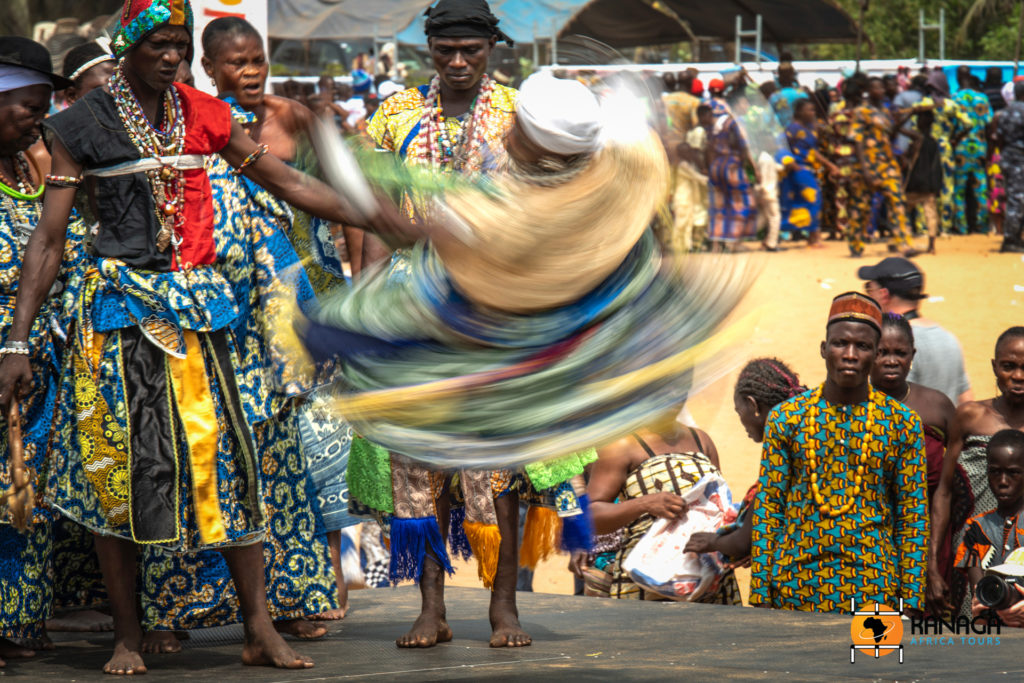© A. Gagliardo
Benin is the cradle of voodoo and has been the scene of the sad history of the slave trade for almost three centuries. The strongest impact on the country’s magical traditions and terrible history comes in the coastal town of Ouidah.
Located about 42 km from Cotonou, this quiet town hides a dramatic history and preserves the terrible memory of entire peoples, deported to the Americas from the 17th to the end of the 19th century. Today, a walk along the road (the Route des Esclaves) leading from Place Chacha to the beach is a reminder of the sad fate of 12 million slaves, first sold at auction in the square, then forced to walk around a tree in chains to forget the land they were leaving behind (the Tree of Oblivion), and finally boarded on the ships that left from the coast at the point where the Gate of No Return memorial stands today. The place is so beautiful that it is hard to imagine it as the scene of these historical events.
Also closely linked to the slave trade is the religious tradition of voodoo rituals, which is still strongly rooted in Benin culture today. Voodoo was introduced to Cuba and Haiti by slaves captured and sold by the kingdom of Dahomey, where it blended with Catholicism. It was originally called vodun in Benin and Togo and meant ‘that which is hidden’, ‘mysterious’. Voodoo recognises the existence of various deities and the higher Mawu. Juju priests are consulted for their ability to communicate with certain spirits and to intercede with them. This communication takes place in many cases through spirit possession and often involves the offering of sacrifices of palm wine, chickens and cattle. During the Marxist period in Kérékou, voodoo was banned, but in 1996 it was formally recognised as an official religion.
Since then, 10 January has been considered a national religious holiday and Ouidah hosts the Voodoo Festival, the most interesting event dedicated to this religion. Ceremonies, sacrifices, songs, dances and large banquets are held in the presence of the country’s most influential religious and political figures. A gigantic, colourful and dazzling festival, a whirlwind of egugun (spirits of the reborn) and zangbeto (spirit-sentinels dedicated to public order), which attracts the faithful and curious from all over the world, but which has not lost its sacredness. For those travelling in Benin, a stay in Ouidah during the festival is definitely an opportunity not to be missed.







